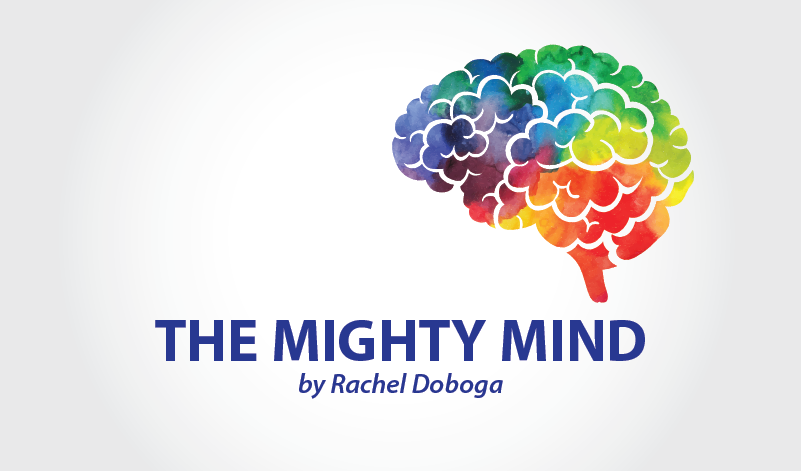Fight Depression by Keeping Watch on Ourselves and Others


Depression is a sneaky beast. It’s the monster beneath the bed, waiting until you’re vulnerable to grab you by the ankles, drag you into its dark, misty kingdom and leave you to wander alone.
I’m just stumbling out of a month-long bout of depression. I knew I was at risk. In fact, the entire ALS community is at risk. According to a list complied by the Mayo Clinic, chronic illness, major life changes, and stress or trauma are all risk factors for developing depression. Sound familiar? Of course, genetics plays a role, too. My family has a strong history of depression, and I am a link in the chain.
On top of understanding that I was vulnerable on multiple fronts, because this is far from my first rodeo, I know the Mayo Clinic’s official list of symptoms of depression by heart.
A few symptoms most relevant to my experience are:
1. Persistent sadness
2. Lack of concentration
3. Irritability
Still, despite battling depression for over a decade, I didn’t see the beast coming or even recognized it when it took over my life. The world just grew dimmer by the day. With all of my experience, how did this happen?
I have learned that once the fog of depression envelops a person, seeing the world clearly, let alone recognizing what is happening to you, can be next to impossible. I kept a diary during this round, and looking back, it’s clear that I didn’t link my actions — the way depression manifests in me — to the National Mental Health Institute’s symptom list.
For example, here is an excerpt from one of my diary entries: “My sadness for my husband Evan is absolutely crushing. If I really think about his situation of watching me decay, if I empathize and imagine myself in his shoes, I feel like I’m dying. Knowing he cries in the car makes me sick. Imagining I’m the one losing him is so unbearable, I end up sobbing to the point that I can’t breathe.”
I knew I felt sad, but even though these fits of crying happened several times a day (meaning my sadness was clearly persistent), it just didn’t occur to me that my feelings weren’t landing in the normal range of human emotion. To learn more about the difference between sadness and depression, read Guy Winch’s article “The important difference between sadness and depression… And why so many people get it wrong.”
After a few weeks, I was in agony. I felt like some dark, toxic thing was gnawing through my chest. I have felt like this before — many, many times. However, it wasn’t until my concerned doctor made a house call after I kept canceling appointments that I realized I wasn’t just experiencing difficult emotions. Rather, I was sick and need to be treated. She pointed out that since I was already on antidepressants, a small increase in dose could have me feeling better quickly. Now, I am well enough to reconsider my treatment plan, and I have decided I could benefit from therapy.
My story looks like it will have a happy ending, but there was so much needless suffering along the way. Plus, if my doctor hadn’t come to me, I would still be wandering in the fog of depression, unable to see the landmarks that told me where I was. Knowing that everyone in the ALS community is at risk for depression, I propose a different way to go about identifying and, subsequently, seeking treatment for this disease. Rather than relying on self-insight when our vision is at its most blurry, let’s learn to watch out for each other.
People living with ALS, family members, and caregivers should become well-versed in the entire list of symptoms, because each person may have a different set of symptoms. One doesn’t actually even have to be sad to have depression. They may oversleep, gain weight, and lose interest in work and hobbies. If we are all aware of the different ways depression can manifest, we will know that sudden, dramatic changes in behavior may be due to a sicknesses that needs to be treated as soon as possible.
Every day, we fight an epic battle against ALS. If we have any hope of achieving a high quality of life in the midst of this struggle, we need to keep our minds mighty and well. As in every aspect of this war, we can only succeed if we watch over each other.
In my next column, I will discuss different types of treatment options for depression.
***
Note: ALS News Today is strictly a news and information website about the disease. It does not provide medical advice, diagnosis, or treatment. This content is not intended to be a substitute for professional medical advice, diagnosis, or treatment. Always seek the advice of your physician or other qualified health provider with any questions you may have regarding a medical condition. Never disregard professional medical advice or delay in seeking it because of something you have read on this website. The opinions expressed in this column are not those of ALS News Today, or its parent company, Bionews Services, and are intended to spark discussion about issues pertaining to ALS.







Katie Johnson
Thank you so much for surfacing this topic as something for the whole community to explore together. I look forward to the next article!